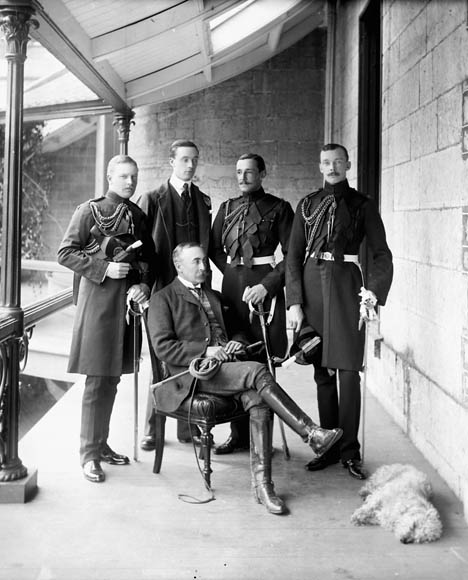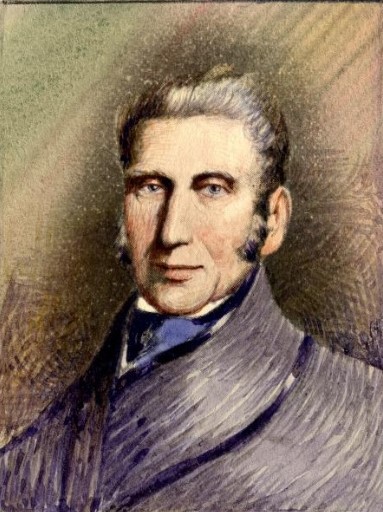Article
George Townshend, 1st Marquess Townshend
George Townshend, 1st Marquess, soldier (b in Eng 28 Feb 1724; d at Rainham, Kent, Eng 14 Sept 1807).

Enter your search term
Signing up enhances your TCE experience with the ability to save items to your personal reading list, and access the interactive map.
Create AccountArticle
George Townshend, 1st Marquess, soldier (b in Eng 28 Feb 1724; d at Rainham, Kent, Eng 14 Sept 1807).
"https://www.thecanadianencyclopedia.ca/images/tce_placeholder.jpg?v=e9dca980c9bdb3aa11e832e7ea94f5d9" // resources/views/front/categories/view.blade.phphttps://www.thecanadianencyclopedia.ca/images/tce_placeholder.jpg?v=e9dca980c9bdb3aa11e832e7ea94f5d9

Article
Gilbert John Murray-Kynynmound Eliot, Viscount Melgund and 4th Earl of Minto, governor general of Canada from 1898 to 1904 (born 9 July 1845 in London, United Kingdom; died 1 March 1914 in Minto, Roxburghshire, United Kingdom).
"https://d3d0lqu00lnqvz.cloudfront.net/media/Lord_Minto_and_his_staff.jpg" // resources/views/front/categories/view.blade.phphttps://d3d0lqu00lnqvz.cloudfront.net/media/Lord_Minto_and_his_staff.jpg

Article
Henry Milnes, soldier (birthdate unknown; died 25 August 1813). Captain Henry Milnes was an infamous figure more for his private life than for his soldiering.
"https://www.thecanadianencyclopedia.ca/images/tce_placeholder.jpg?v=e9dca980c9bdb3aa11e832e7ea94f5d9" // resources/views/front/categories/view.blade.phphttps://www.thecanadianencyclopedia.ca/images/tce_placeholder.jpg?v=e9dca980c9bdb3aa11e832e7ea94f5d9

Article
Henry Procter, army officer (b c 1763 at Kilkenny, Ireland; d at Bath, Eng 31 Oct 1822). Henry Procter was the son of a British army surgeon. He was considered by some as among the worst officers of the British forces in the WAR OF 1812.
"https://www.thecanadianencyclopedia.ca/images/tce_placeholder.jpg?v=e9dca980c9bdb3aa11e832e7ea94f5d9" // resources/views/front/categories/view.blade.phphttps://www.thecanadianencyclopedia.ca/images/tce_placeholder.jpg?v=e9dca980c9bdb3aa11e832e7ea94f5d9

Article
Hugh Palliser, naval officer, governor of Newfoundland (b at Kirk Deighton, Eng 26 Feb 1722/ 23; d at Chalfont St Giles, Eng 19 Mar 1796). He was a naval officer at the siege of Québec in 1759, and was appointed governor of Newfoundland 1764.
"https://www.thecanadianencyclopedia.ca/images/tce_placeholder.jpg?v=e9dca980c9bdb3aa11e832e7ea94f5d9" // resources/views/front/categories/view.blade.phphttps://www.thecanadianencyclopedia.ca/images/tce_placeholder.jpg?v=e9dca980c9bdb3aa11e832e7ea94f5d9

Editorial
The following article is an editorial written by The Canadian Encyclopedia staff. Editorials are not usually updated.
"https://www.thecanadianencyclopedia.ca/images/tce_placeholder.jpg?v=e9dca980c9bdb3aa11e832e7ea94f5d9" // resources/views/front/categories/view.blade.phphttps://www.thecanadianencyclopedia.ca/images/tce_placeholder.jpg?v=e9dca980c9bdb3aa11e832e7ea94f5d9

Article
James Abercromby, army officer (b at Banffshire, Scot 1706; d at Glassaugh, Scot 23 Apr 1781). A career soldier, he came to North America in 1756 and was appointed commander in chief of British forces.
"https://www.thecanadianencyclopedia.ca/images/tce_placeholder.jpg?v=e9dca980c9bdb3aa11e832e7ea94f5d9" // resources/views/front/categories/view.blade.phphttps://www.thecanadianencyclopedia.ca/images/tce_placeholder.jpg?v=e9dca980c9bdb3aa11e832e7ea94f5d9

"https://www.thecanadianencyclopedia.ca/images/tce_placeholder.jpg?v=e9dca980c9bdb3aa11e832e7ea94f5d9" // resources/views/front/categories/view.blade.phphttps://www.thecanadianencyclopedia.ca/images/tce_placeholder.jpg?v=e9dca980c9bdb3aa11e832e7ea94f5d9

Article
James Miranda Steuart Barry, FRS (probably born Margaret Anne Bulkley), military surgeon, physician (born c. 1789–99; died 25 July 1865 in London, England). Posted across the British Empire, Barry reformed medical standards in the British army. His final and highest-ranking position was as inspector-general of military hospitals in the Province of Canada in the 1850s. After his death, it was reported that Barry’s assigned sex at birth was female. This has sparked significant debate about his identity. Note on pronouns: This article refers to James Barry with masculine pronouns, as this was how Barry referred to himself throughout his life. Click here for definitions of key terms used in this article.
"https://d3d0lqu00lnqvz.cloudfront.net/media/new_article_images/JamesBarry/Barry portrait 1810s.jpg" // resources/views/front/categories/view.blade.phphttps://d3d0lqu00lnqvz.cloudfront.net/media/new_article_images/JamesBarry/Barry portrait 1810s.jpg

Article
James FitzGibbon (sometimes spelled Fitzgibbon), soldier, public servant (born 16 November 1780 in Glin, County Limerick, Ireland; died 12 December 1863 in Windsor Castle, England). Lieutenant and hero of the War of 1812, James FitzGibbon is best known for his actions as a guerrilla fighter who harassed the American forces, and for being the soldier whom Laura Secord informed of the American surprise attack after the capture of Fort George in May 1813. (See also Battle of Beaver Dams.) Tough and wily, FitzGibbon was one of the few soldiers who fought both conventional battles and irregular warfare during the War of 1812.
"https://d3d0lqu00lnqvz.cloudfront.net/JamesFitzGibbon.jpg" // resources/views/front/categories/view.blade.phphttps://d3d0lqu00lnqvz.cloudfront.net/JamesFitzGibbon.jpg

Article
James Glenie, army officer, politician (b at Fife, Scot 1750; d at London, Eng 23 Nov 1817). After service in Québec during the AMERICAN REVOLUTION Glenie resigned his army commission and settled in New Brunswick (1787).
"https://www.thecanadianencyclopedia.ca/images/tce_placeholder.jpg?v=e9dca980c9bdb3aa11e832e7ea94f5d9" // resources/views/front/categories/view.blade.phphttps://www.thecanadianencyclopedia.ca/images/tce_placeholder.jpg?v=e9dca980c9bdb3aa11e832e7ea94f5d9

Article
James MacBraire, soldier, merchant, shipowner, justice of the peace (b at Enniscorthy, Wexford, Ire 1760; d at Berwick on Tweed, Eng 24 Mar 1832). He is first recorded in Harbour Grace, Nfld, in the 1780s working as a clerk for a Bristol firm engaged in the cod fishery.
"https://www.thecanadianencyclopedia.ca/images/tce_placeholder.jpg?v=e9dca980c9bdb3aa11e832e7ea94f5d9" // resources/views/front/categories/view.blade.phphttps://www.thecanadianencyclopedia.ca/images/tce_placeholder.jpg?v=e9dca980c9bdb3aa11e832e7ea94f5d9

Article
James Wolfe, British army officer (born 2 January 1727 in Westerham, Kent, England; died 13 September 1759 near Quebec City). Wolfe fought in the War of the Austrian Succession, the suppression of the Jacobite Rebellion and the Seven Years’ War. He is best known for his role in the Battle of the Plains of Abraham in 1759. Both Wolfe and his opponent, Louis-Joseph, Marquis de Montcalm, died from wounds sustained during the battle. The British victory was a turning point in the Seven Years’ War, leading to the capture of Montreal in 1760 and the acquisition of Canada by Britain in 1763.
"https://d3d0lqu00lnqvz.cloudfront.net/JamesWolfe/Benjamin_West_DeathofGeneralWolfe.jpg" // resources/views/front/categories/view.blade.phphttps://d3d0lqu00lnqvz.cloudfront.net/JamesWolfe/Benjamin_West_DeathofGeneralWolfe.jpg

Article
Jeffery Amherst, 1st Baron Amherst, British army officer (born 29 January 1717 near Sevenoaks, England; died 3 August 1797 near Sevenoaks). Jeffery Amherst was the commander-in-chief of British forces in North America during the Seven Years' War, which saw France surrender Canada to the British. Several streets and towns in North America — including Amherst, Nova Scotia, and Amherstburg, Ontario — were named in his honour. However, Amherst’s legacy is controversial, given his policy towards Indigenous peoples. This included his suggestion in 1763 to deliberately infect Indigenous peoples with smallpox during Pontiac’s War. In 2019, Montreal’s Amherst Street was renamed Atateken Street; Atateken means “brothers and sisters” in Kanien'kéha, the Mohawk language.
"https://d3d0lqu00lnqvz.cloudfront.net/media/Amherst/Amherst.jpg" // resources/views/front/categories/view.blade.phphttps://d3d0lqu00lnqvz.cloudfront.net/media/Amherst/Amherst.jpg

Article
John Baskerville (sometimes spelled Baskervyle) Glegg, soldier, military figure in the WAR OF 1812 (b Cheshire, Eng, 1773; d 1861). John Glegg was the second son in a landed family of Thurstaston Hall.
"https://www.thecanadianencyclopedia.ca/images/tce_placeholder.jpg?v=e9dca980c9bdb3aa11e832e7ea94f5d9" // resources/views/front/categories/view.blade.phphttps://www.thecanadianencyclopedia.ca/images/tce_placeholder.jpg?v=e9dca980c9bdb3aa11e832e7ea94f5d9
